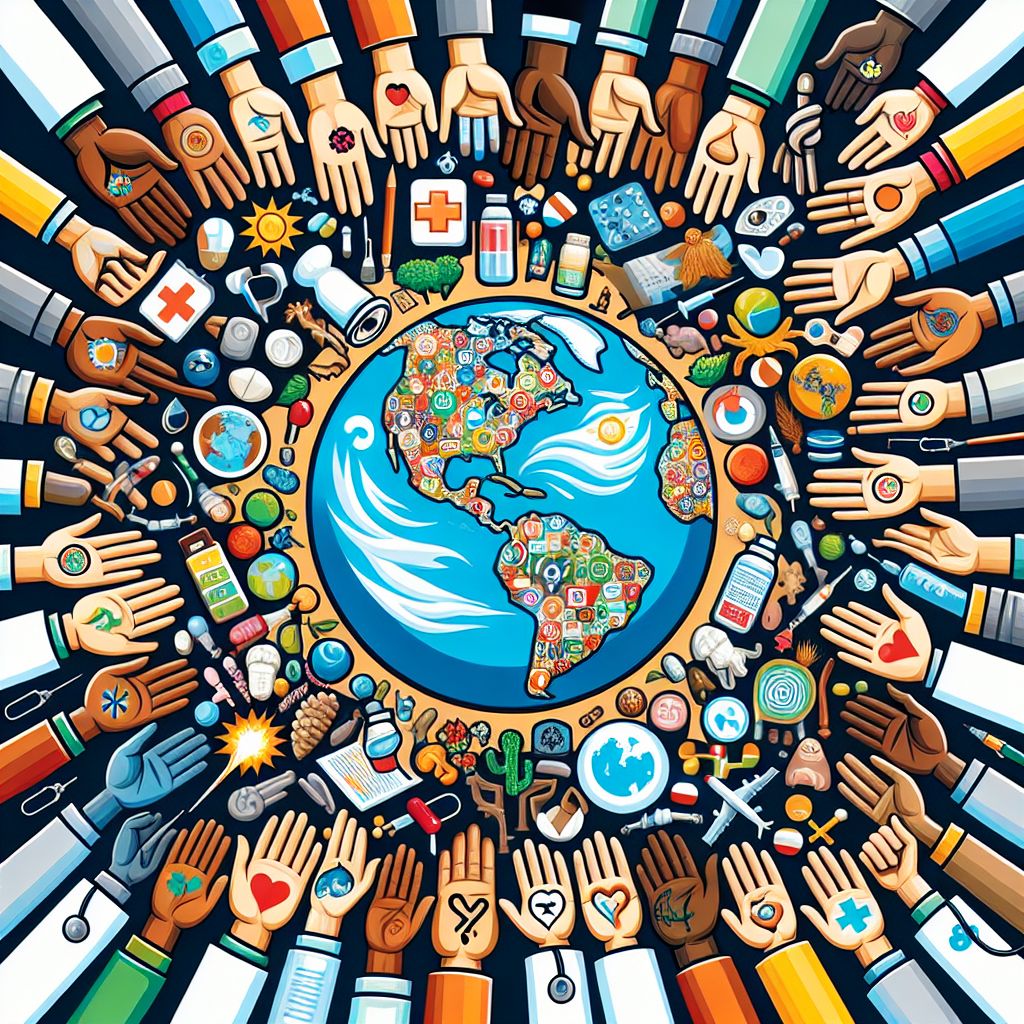Table of Contents
- Introduction: The Convergence of Civilization and Medicine Against Climate Change
- The Moral Obligation of Civilized Nations
- The Pivotal Role of Doctors
- Mobilizing Resources for Climate Action
- Building Climate-Resilient Healthcare Systems
- Conclusion: A United Front Against Climate Change
Introduction: The Convergence of Civilization and Medicine Against Climate Change
Global warming is an alarming issue that demands immediate attention and effective solutions. The role of civilized nations and healthcare practitioners in combating this crisis is crucial. The issue at hand is not just significant due to its potential to cause catastrophic natural disasters and economic turmoil but also due to its likely impact on human health. Civilized societies, characterized by their advancements in technology, infrastructure, and healthcare systems, have a moral and practical obligation to lead the fight against climate change. Moreover, doctors, as critical members of these societies, have a unique role in this battle. Their expertise and influence can help shape public perception and policy on environmental health issues.
The Moral Obligation of Civilized Nations
Civilized nations, often considered the world’s wealthiest and most technologically advanced, have a significant role to play in addressing climate change. These countries, while contributing significantly to global warming through industrial processes, also have the resources and technological capabilities to combat it. They have a moral obligation to lead global efforts in reducing greenhouse gas emissions, transitioning to renewable energy, and investing in sustainable technologies. Moreover, their robust healthcare systems can help mitigate the health impacts of climate change and build resilience among communities.
The Pivotal Role of Doctors
Doctors can play a pivotal role in the fight against climate change. Their expertise in health and disease can help identify and manage the health impacts of global warming, such as heatstroke, respiratory issues, and vector-borne diseases. They can collaborate with public health officials to develop strategies for preventing and responding to health crises linked to climate change. Furthermore, doctors can leverage their credibility and influence to advocate for environmental health policies and raise public awareness about the health risks of climate change.
Mobilizing Resources for Climate Action
Civilized nations have the financial resources, scientific knowledge, and technological capabilities to drive significant action on climate change. They can invest in renewable energy, energy-efficient technologies, and green infrastructure to reduce their carbon footprint. They can also fund research and innovation to develop new solutions for mitigating climate change and adapting to its impacts. At the same time, these nations can support developing countries in their climate action efforts, either through funding, technology transfer, capacity building, or policy support.
Building Climate-Resilient Healthcare Systems
Doctors and healthcare systems have a critical role in preparing for and responding to the health impacts of climate change. They can develop and implement plans for managing health emergencies related to extreme weather events, infectious diseases, and other climate-related health issues. They can also integrate climate change into medical education and training, equipping future healthcare practitioners with the knowledge and skills needed to address environmental health challenges. Moreover, they can advocate for policies that promote healthier, more sustainable lifestyles, thereby contributing to the mitigation of climate change.
Conclusion: A United Front Against Climate Change
Climate change is a global challenge that requires a united and concerted effort. Civilized nations, with their resources and capabilities, must lead the fight against this crisis. At the same time, doctors and healthcare systems have an essential role to play in managing the health impacts of climate change and advocating for environmental health. By working together, these societies and healthcare practitioners can make significant strides in combating global warming and protecting human health. The battle against climate change is not just about saving our planet, but also about preserving our health, our societies, and our future.
Looking forward, it’s clear that the fight against climate change is a multifaceted issue, requiring attention from multiple angles. It’s not only about reducing carbon emissions and promoting renewable energy sources, but also about adjusting our lifestyles and societal structures to be more sustainable and resilient. This involves everything from promoting sustainable farming practices and protecting our natural habitats, to investing in green infrastructure and designing our cities to be more energy efficient.
Moreover, it’s about fostering a deeper understanding and respect for our natural world, and recognizing the intrinsic value that it holds. By doing so, we can cultivate a more harmonious relationship with our planet, which is a crucial aspect of mitigating climate change. After all, our health, societies, and future are all inextricably linked to the well-being of our planet.
Furthermore, education plays a significant role in this battle. The more we understand the impacts of climate change, the better equipped we are to make informed decisions and take necessary actions. It’s crucial that we raise awareness about the severity of the issue and promote solutions that are environmentally, socially, and economically viable.
Ultimately, the fight against climate change is a collective endeavor, requiring the participation and collaboration of all sectors of society. Whether it’s through individual actions like reducing waste and conserving energy, or through collective efforts like advocating for policy changes and supporting sustainable businesses, each of us has a role to play. By working together, we can create a healthier, more sustainable, and more resilient world for future generations.
